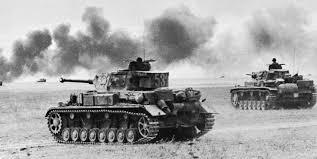World War II was one of the most significant and devastating events in human history. It lasted from 1939 to 1945, involving over 60 countries and resulting in the deaths of an estimated 70–85 million people. The war began when Nazi Germany, under Adolf Hitler, invaded Poland. This act led Britain and France to declare war on Germany, triggering a global conflict.
The war was fought between two major alliances: the Allied Powers—including the United States, Soviet Union, United Kingdom, France, and others—and the Axis Powers, led by Germany, Italy, and Japan. It witnessed major events like the Holocaust, the attack on Pearl Harbor, the Battle of Stalingrad, D-Day, and the atomic bombings of Hiroshima and Nagasaki.
World War II was not only a military battle but also a fight for freedom and justice. The Holocaust saw the systematic murder of six million Jews and millions of others by the Nazis. The war ended in 1945 with the defeat of the Axis Powers, leading to the creation of the United Nations to promote peace and prevent future conflicts.
The war reshaped the world politically, economically, and socially. It led to the emergence of the United States and the Soviet Union as superpowers and started the Cold War era. The lessons of World War II continue to remind humanity of the value of peace, unity, and the dangers of hatred and dictatorship.

